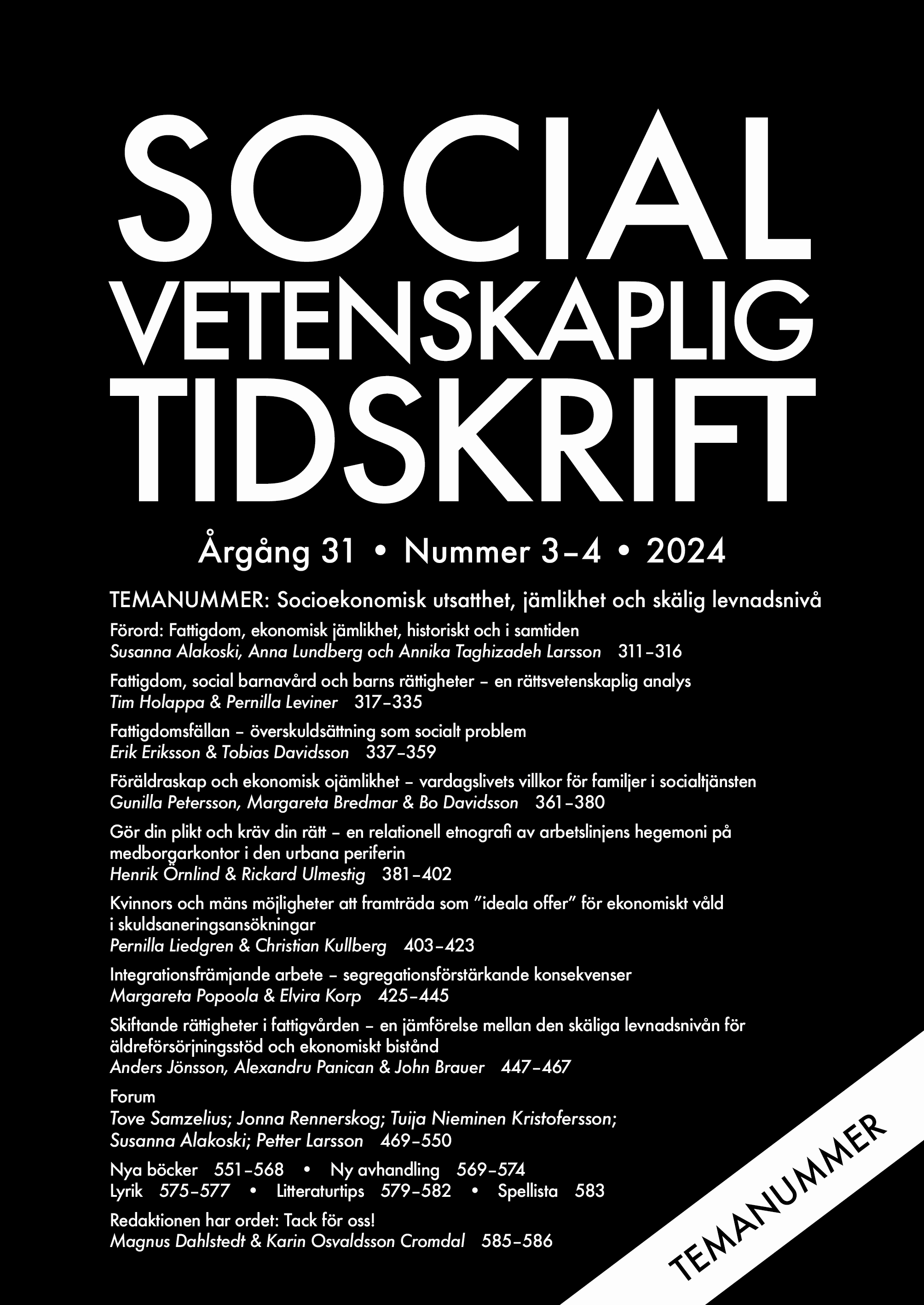Integrationsfrämjande arbete
– segregationsförstärkande konsekvenser
DOI:
https://doi.org/10.3384/SVT.2024.31.3-4.5629Nyckelord:
Integration, Segregation, Community, Cohesion, Welfare, Urban planningAbstract
Integration-promoting efforts - Segregation enhancing consequences
Focusing on Malmö, one of Sweden’s major cities, this analysis examines the strategies implemented over recent decades to counteract segregation. It explores the impact of these initiatives on the development or manifestation of segregation. Key questions guiding the analysis include: What is considered an expression of segregation and integration, respectively? Which approaches to counteract segregation have been prioritised during different periods, and how do these approaches compare? Why does segregation persist despite various efforts to combat it?
The analysis draws on a comprehensive report summarising 25 years of Malmö’s work to counteract segregation. The methods that have been used include reviews of political decisions, guidelines, budget documents, etc., and interviews with eleven stakeholders, including politicians, researchers, and civil servants. Grounded in the view that integration and segregation are linked to welfare, the analysis uses the concepts of cohesion and community as its theoretical foundation.
The results indicate a historical tendency to focus on migrants, employment, and sustenance within specific residential areas, resulting in stigmatisation. Recently, policies have taken a repressive turn, neglecting underlying structural factors which ultimately reinforce rather than mitigating segregation and its negative consequences.
Downloads
Publicerad
Referera så här
Nummer
Sektion
Licens
Copyright (c) 2024 Margareta Popoola, Elvira Korp

Det här verket är licensierat under en Creative Commons Erkännande 4.0 Internationell-licens.
Allt material i Socialvetenskaplig tidskrift publiceras sedan 2022 (Vol 28 Nr 2) med omedelbar öppen tillgång (open access), under Creative Commons-licensen CC BY 4.0. Upphovsrätten till innehållet tillhör respektive författare.
Allt innehåll i tidskriften är fritt tillgängligt utan kostnad och får fritt läsas, laddas ned, kopieras, delas, skrivas ut och länkas. När innehållet används måste författare, källa och licens anges. Författaren kan fritt göra sin publicerade text tillgänglig på institutionella och internetbaserade arkiv, exempelvis sitt lärosätes digitala arkiv eller andra tjänster för detta.
Inga publiceringsavgifter tas ut vid publicering i Socialvetenskaplig tidskrift.


